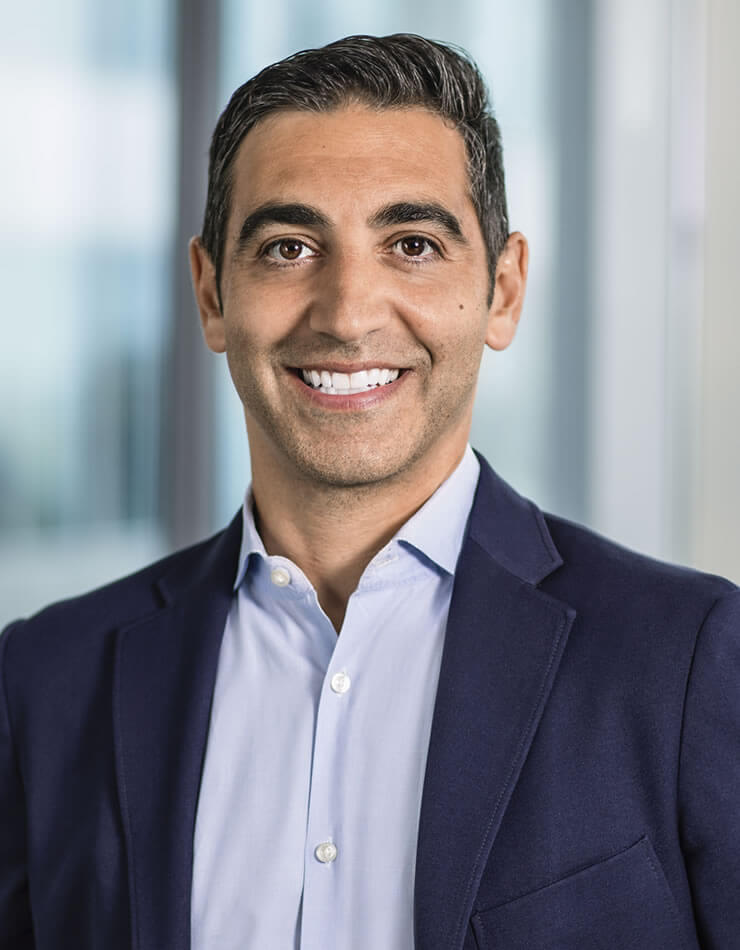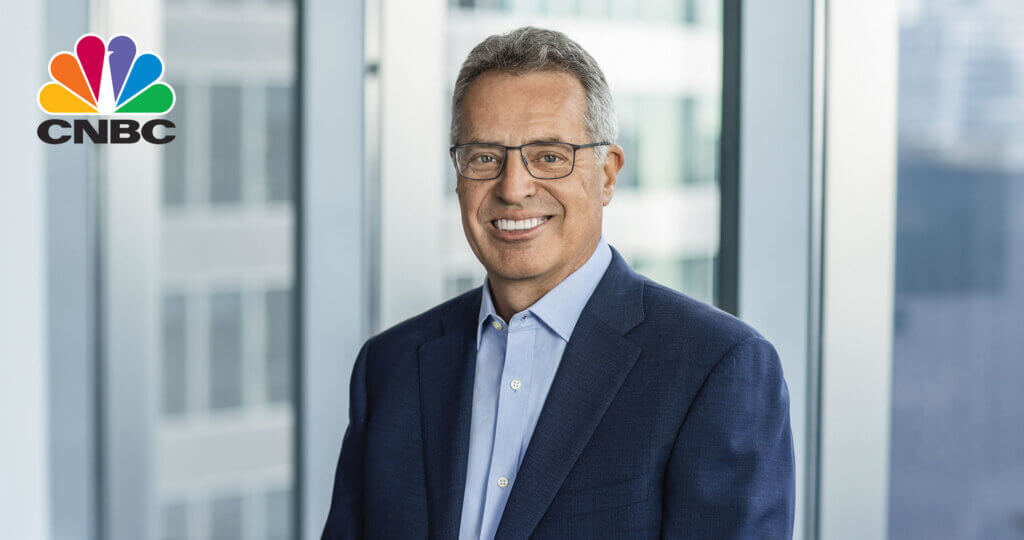Oakmark Fund - Investor Class
Average Annual Total Returns 06/30/21
Since Inception 08/05/91 13.14%
10-year 14.38%
5-year 17.51%
1-year 65.94%
3-month 8.90%
Gross Expense Ratio: 0.93%
Net Expense Ratio: 0.91%
Expense ratios are based on estimated amounts for the current fiscal year; actual expenses may vary.
The net expense ratio reflects a contractual advisory fee waiver agreement through January 27, 2022.
Past performance is no guarantee of future results. The performance data quoted represents past performance. Current performance may be lower or higher than the performance data quoted. The investment return and principal value vary so that an investor’s shares when redeemed may be worth more or less than the original cost. To obtain the most recent month-end performance data, view it here.
The Oakmark Fund was up 8.9% for the quarter, which compares to the S&P 500 Index’s return of 8.6%. For the trailing 12-month period, the Oakmark Fund increased 65.9%, outperforming our benchmark by 25 percentage points. Following an unusually elevated year of portfolio turnover (at least by Oakmark standards), we added just one new position to the portfolio during the second quarter: Intercontinental Exchange. That’s not to say we weren’t active. We also added to 10 existing holdings and exited our stakes in Caterpillar and MGM Resorts International. What follows is a description of our rationale for each decision.
Intercontinental Exchange is one of the largest and, in our view, most successful financial exchange operators in the world. The company was created through a series of shrewd acquisitions executed by their founder and CEO Jeff Sprecher. Sprecher is one of the more capable CEOs we’ve evaluated, having demonstrated a long history of astute capital allocation and a willingness to act and adapt rapidly to new opportunities and competitive threats. Today, Intercontinental Exchange competes in three primary business segments: exchanges, fixed income/data services and mortgage technology. We believe each of these businesses exhibits attractive economic characteristics and that each should grow earnings well in excess of GDP over the long term. Despite this favorable long-term outlook, the company currently trades at a P/E ratio that is roughly in line with the S&P 500. We believe a business with Intercontinental Exchange’s strong competitive position, excellent management team and attractive growth outlook deserves to trade well above a market multiple. We like buying great businesses at average prices and believe Intercontinental Exchange represents a compelling opportunity to do just that.
Having followed the company closely for north of a decade, Caterpillar is a name we know well. For much of its history, the operating efficiency of the company left much to be desired, but its underlying competitive position was rarely in doubt. A series of actions over the past decade (e.g., LEAN implementation, improved service mix, optimized manufacturing footprint) helped to narrow the gap between Caterpillar’s potential and its realized results, driving material margin expansion and strong share price performance. In our view, the company remains among the highest quality industrials in the market, but its underlying business is cyclical, which can translate to large swings in both performance and investor sentiment over short time periods. Our ability to focus on the long-term, sustainable earnings power of a business (rather than getting distracted by near-term fluctuations) is our most significant edge when investing in cyclical businesses. Due to the inherent volatility in Caterpillar’s end markets and operating performance, we suspect we’ll have a future opportunity to own this high-quality business at a more attractive price once the cycle turns and today’s enthusiasm wears off.
We originally established our position in MGM during 2016. At that time, we believed its valuation did not reflect the improving fundamentals of the Las Vegas Strip, which was recovering from years of overbuilding. The market had also failed to recognize the quality of MGM’s assets and its potential to dramatically reduce a bloated cost structure. A long history of private market transaction activity further supported our view that the stock was materially undervalued. However, choppy execution by former management and a profit growth plan that failed to live up to expectations made this a bumpy (yet rewarding!) investment for Oakmark. Perhaps the biggest surprise relative to our initial thesis is the momentum and excitement surrounding the online sports gambling market. The company’s BetMGM platform has quickly staked the third-largest market position in online sports betting with plans to capture up to 25% of this $30+ billion market, which continues to grow rapidly. The exuberance surrounding digital gaming, coupled with expectations for a strong post-pandemic recovery in Las Vegas, has lifted the stock price to our estimate of intrinsic value. Therefore, we sold our shares in favor of more attractively priced alternatives.
The most significant contributors to our performance during the second quarter were Capital One Financial and Alphabet and our biggest detractors were Fiserv and Reinsurance Group of America. We continue to hold each of these investments as their business fundamentals are tracking well relative to our expectations and the stocks trade for healthy discounts to our estimates of fair value.
As always, we appreciate your continued support and confidence in the Oakmark Fund.
The securities mentioned above comprise the following percentages of the Oakmark Fund’s total net assets as of 06/30/21: Alphabet Cl A 3.9%, Capital One Financial 3.8%, Caterpillar 0%, Fiserv 2.0%, Intercontinental Exchange 0.9%, MGM Resorts International 0% and Reinsurance Group 1.4%. Portfolio holdings are subject to change without notice and are not intended as recommendations of individual stocks.
Access the full list of holdings for the Oakmark Fund as of the most recent quarter-end.
The S&P 500 Total Return Index is a float-adjusted, capitalization-weighted index of 500 U.S. large-capitalization stocks representing all major industries. It is a widely recognized index of broad, U.S. equity market performance. Returns reflect the reinvestment of dividends. This index is unmanaged and investors cannot invest directly in this index.
The price to earnings ratio (“P/E”) compares a company’s current share price to its per-share earnings. It may also be known as the “price multiple” or “earnings multiple”, and gives a general indication of how expensive or cheap a stock is. Investors should not base investment decisions on any single attribute or characteristic data point.
The Oakmark Fund’s portfolio tends to be invested in a relatively small number of stocks. As a result, the appreciation or depreciation of any one security held by the Fund will have a greater impact on the Fund’s net asset value than it would if the Fund invested in a larger number of securities. Although that strategy has the potential to generate attractive returns over time, it also increases the Fund’s volatility.
The information, data, analyses, and opinions presented herein (including current investment themes, the portfolio managers’ research and investment process, and portfolio characteristics) are for informational purposes only and represent the investments and views of the portfolio managers and Harris Associates L.P. as of the date written and are subject to change and may change based on market and other conditions and without notice. This content is not a recommendation of or an offer to buy or sell a security and is not warranted to be correct, complete or accurate.
Certain comments herein are based on current expectations and are considered “forward-looking statements”. These forward looking statements reflect assumptions and analyses made by the portfolio managers and Harris Associates L.P. based on their experience and perception of historical trends, current conditions, expected future developments, and other factors they believe are relevant. Actual future results are subject to a number of investment and other risks and may prove to be different from expectations. Readers are cautioned not to place undue reliance on the forward-looking statements.
All information provided is as of 06/30/2021 unless otherwise specified.





